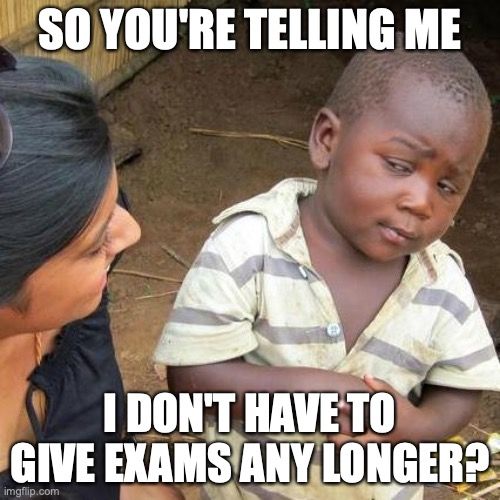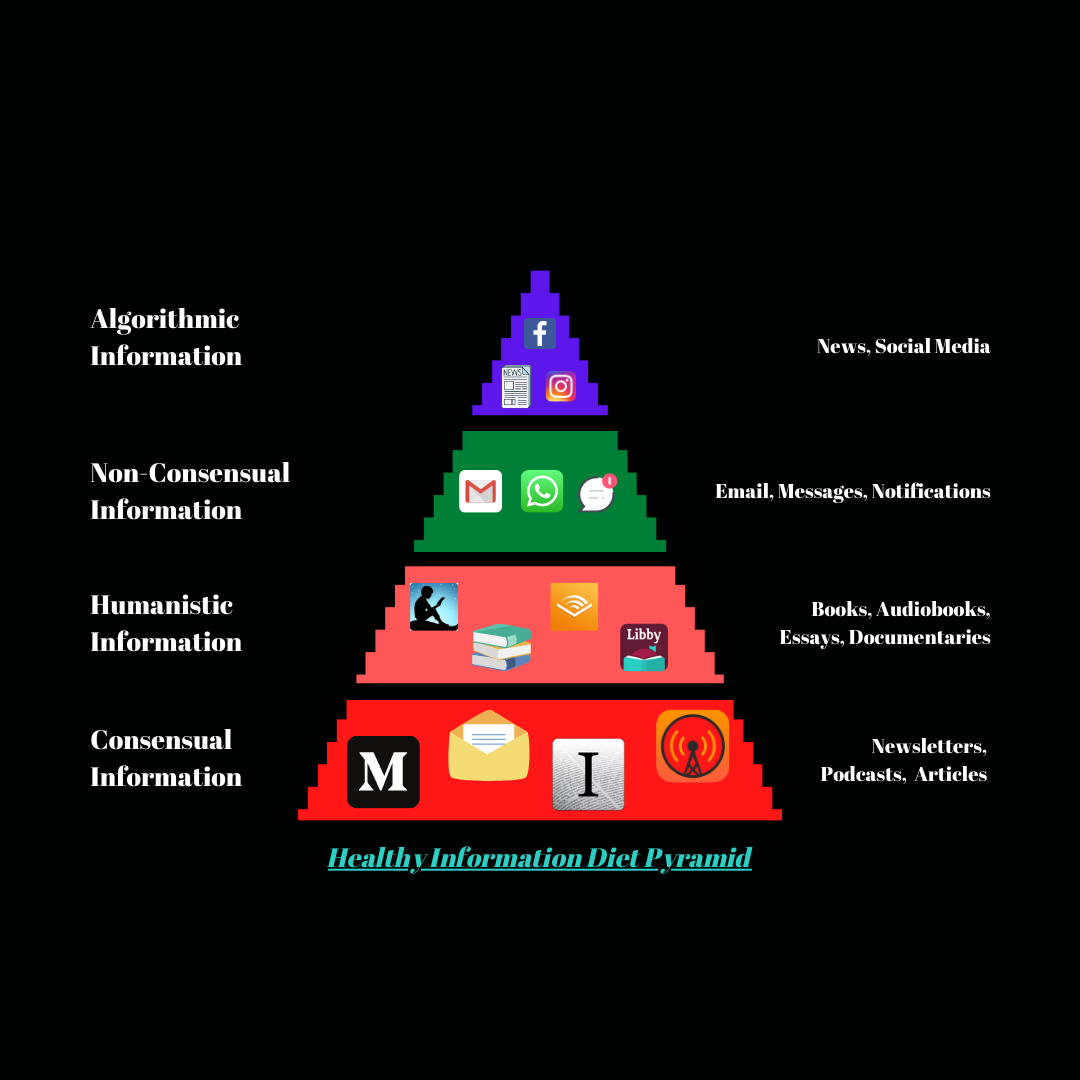A healthy information diet
The first 20 odd years of our lives are spent focusing on structured learning and experiences. Textbooks, field trips, gym class, debate society, model United Nations, etc. But then we graduate from college and move from structured to unstructured growth.

For most people, this means that they stop reading books and taking classes. They rely on their employers and social media to teach them new skills and expose them to new ideas. This of course is not the best way to go through life. Those that invest even a few hours every week on new knowledge will rapidly rise to the top with an edge over their competition. But I'm not here to convince you of this. You're reading this, so you're already investing in your continued growth.
What should your information diet look like?

A. Algorithmic information - anything with an algorithm-based news feed (Facebook, Instagram, Google News, YouTube, etc.). The reason this should be kept to a minimum is because this medium tends to cater to short-term reactionary information rather than long-term knowledge. Further, the objective of these algorithms is to showcase the most sensational content that is aligned with your existing views (tunnel vision). They don't showcase content that you might disagree with but could expand your point of view. I basically don't use Instagram or Facebook or read any news for this reason. If there's something big enough like the Russia-Ukraine war, my other information sources and network will surface those to me. Being a news junkie has no long-term value.